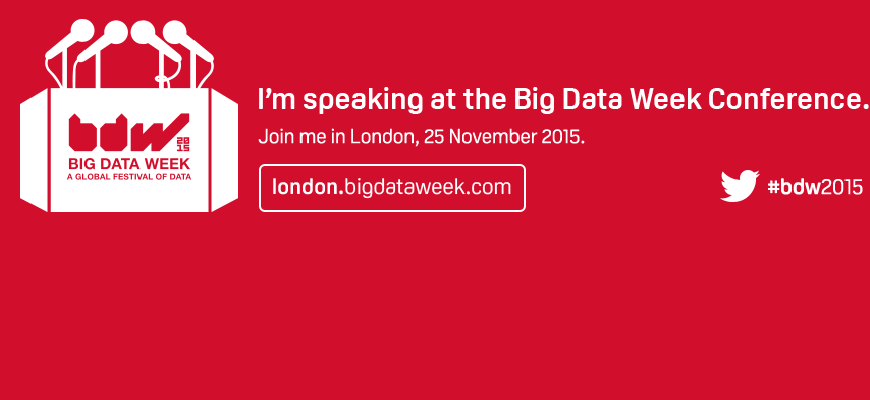Interview with MARTON TRENCSENI – Director of Data Analytics / Prezi
This article takes part from the interview series with our speakers for this year edition of Big Data Week.
Enjoy Marton’s thoughts on big data.
While Big Data is already a buzz term, what does it actually mean for you?
Big Data is when a company can easily collect large amounts and a wide variety of data about its business, its users, its product, and extract meaningful information from it, at scale, effectively, and at a reasonable cost.
Is it important to be data driven nowadays? If yes, why (please use examples from your industry if possible)?
Data-driven in the SaaS business means you use data derived from users interacting with your product to:
– gauge opportunities before making investments into building products (or features) to address them
– use data to decide whether it worked, ie. A/B testing on well-defined metrics and KPIs
– use data to build a model of your business, your product, and how your users interact with it (eg. the viral loop)
– explore the data to find interesting patterns and discover something new about your users
Without this, companies would be relying on gut feelings, possibly poorly quantified past experiences and HIPPO to make decisions, which in the long run leads to poor decisions and missed opportunities, missed revenues. On the other hand, being data-driven doesn’t guarantee success: you can still go down a wrong road, ie. build the wrong product, but at least you’ll have data giving you early indications.
What are the main challenges a company encounters when starting to look at their data?
(i) Data quality issues arising from:
– poor logging, eg. plaintext instead of structured logging
– poor engineernig practices, eg. creating test users in the production DB
– data infrastructure bugs
– no ownership of core ETL jobs and core datasets
(ii) Infrastructure challenges:
– select which components fit your use-case and culture:
– do you run it on-premise or in the cloud or outsource it?
– use open-source, buy it or build it?
– building the company-specific in-house tooling, also tools that can be used by non-experts like product managers
(iii) Standardization of KPIs: everybody in the company should agree what an “active user” is or how “monthly recurring revenue” or “chargeback rate” is computed _exactly_.
(iv) Standardized reporting layers: everybody in the company should be clear where data and reportS are, and how they can be used.
(v) Hiring people for (i)-(iv) :)
What do you expect from your participation/talk at Big Data Week?
Spreading the lessons I learned building out Prezi’s Big Data architecture and culture over the last 3+ years.
Engaging with others who work similar jobs at different companies.
Who should come and listen your talk in Big Data Week?
Everybody who thinks A/B testing and standardized metrics are important for evaluating experiments, and is possibly facing such challenges in their company.
Do we still need data scientists with all the tools existing today for data cleaning, analysis, machine learning?
Yes :) Currently, no AI will tell you how to size an opportunity like “should we move feature X behind the paywall?”
Marton j oined Prezi 3 years ago and is currently serving as Director of Data and Analytics. He runs data infrastructure, tools, analytics and insight and grew the team from 5 to almost 20 in the last two years. Prior to joining Prezi, Marton was the co-founder of Scalien, a distributed NoSQL database startup. He has degrees in Computer Science and Physics.
oined Prezi 3 years ago and is currently serving as Director of Data and Analytics. He runs data infrastructure, tools, analytics and insight and grew the team from 5 to almost 20 in the last two years. Prior to joining Prezi, Marton was the co-founder of Scalien, a distributed NoSQL database startup. He has degrees in Computer Science and Physics.


